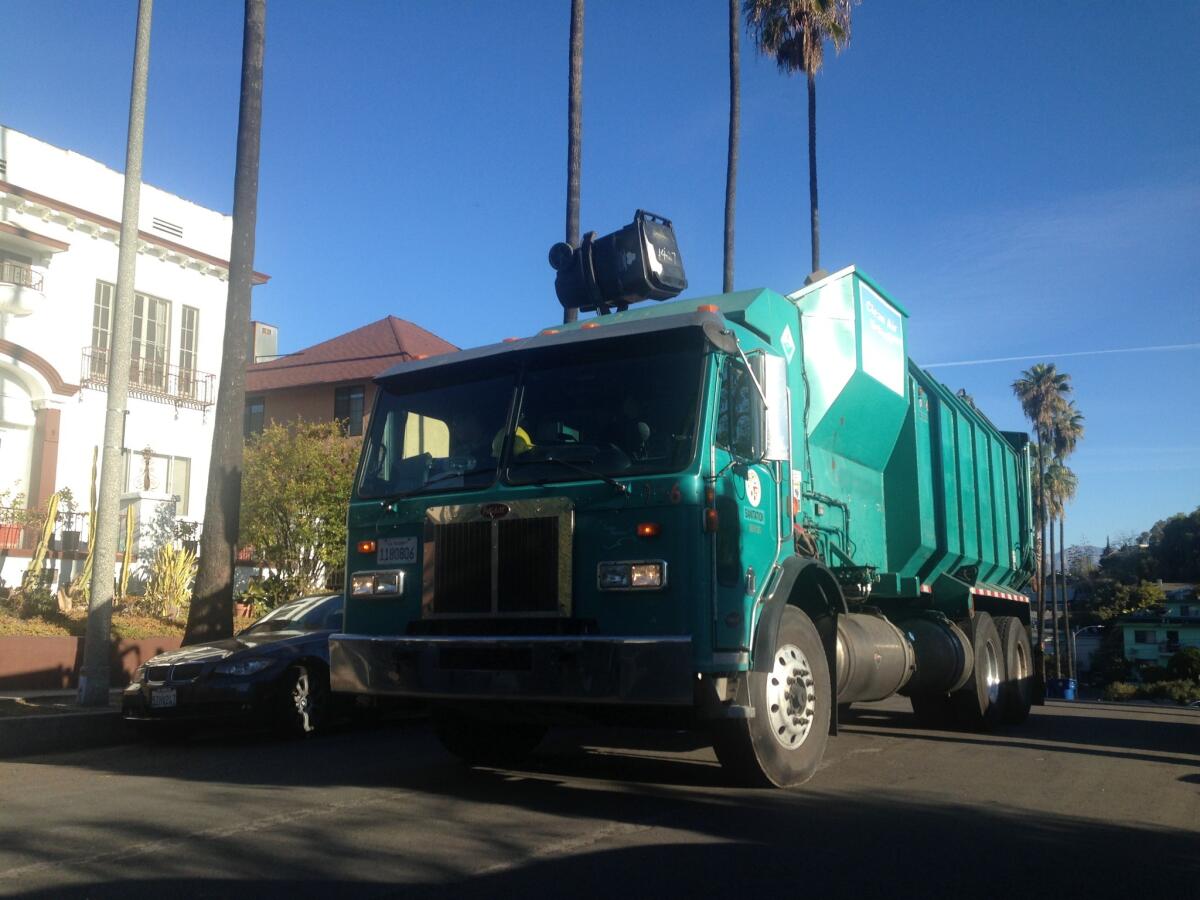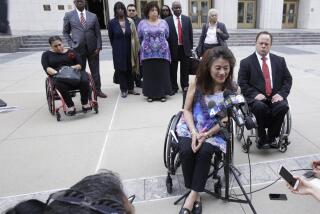L.A. to pay $26 million for ban on naps by garbage-truck drivers

The Los Angeles City Council on Tuesday finalized a $26-million legal settlement to end a lawsuit over a ban on lunchtime naps by trash-truck drivers.
The expenditure, approved on a 9-2 vote, resolves a class-action lawsuit involving nearly 1,100 sanitation workers who said they were improperly barred from sleeping and engaging in other activities during their meal breaks.
The Times reported in February that the council had endorsed the settlement. Councilman Paul Krekorian, who supported the payment, said the settlement was not publicly announced earlier this year because it was not final and needed the approval of a judge.
Sanitation officials had imposed the no-nap rule to avoid the bad publicity that would come if a resident, business owner or television news crew stumbled across a sleeping city employee. But lawyers for the drivers said the city, by limiting workers’ mealtime activities, had essentially robbed them of their meal breaks.
The rules “controlled where they could go, what they could do, who they could eat with, all sorts of things,” said attorney Matthew Taylor, who represented the drivers.
Councilmen Mitchell Englander and Joe Buscaino cast the only opposing votes. Buscaino spokesman Branimir Kvartuc said his boss, a former police officer, voted in line with what his constituents would want.
“As a police officer, he never needed to sleep in his car. As a councilman, he never sleeps in his office,” Kvartuc said.
The Bureau of Sanitation’s rules also prohibited trash-truck drivers from congregating in large groups at restaurants or heading to dining spots outside their designated pickup routes. Those rules were designed to avoid inconveniencing neighborhoods and restaurant owners, according to sanitation officials.
Taylor said the settlement will provide an average of $15,000 in lost wages for each driver. As part of the deal, Taylor and other lawyers for the drivers will receive nearly $8.7 million in legal fees.
In paperwork filed with the council, Krekorian said the city would have faced “likely damages” of around $40 million had a settlement not been reached.
Follow @DavidZahniser for what’s happening at Los Angeles City Hall
More to Read
Sign up for Essential California
The most important California stories and recommendations in your inbox every morning.
You may occasionally receive promotional content from the Los Angeles Times.











